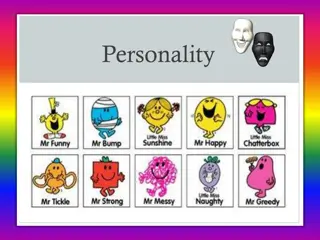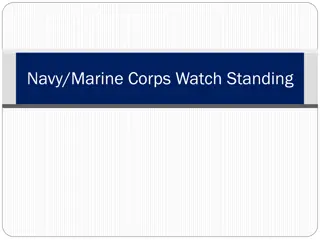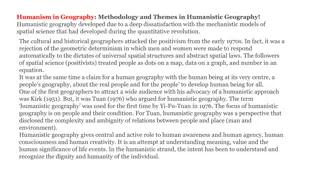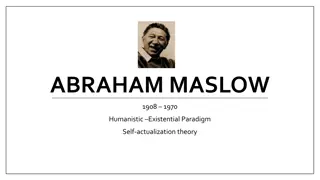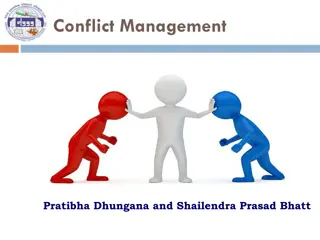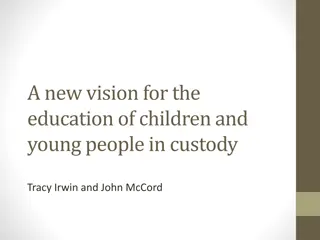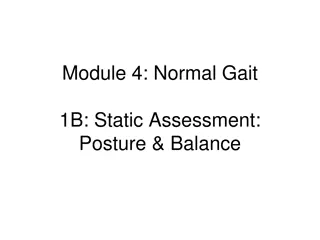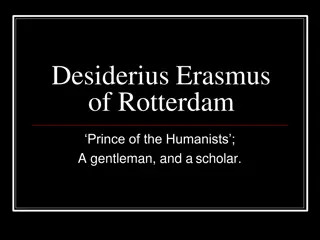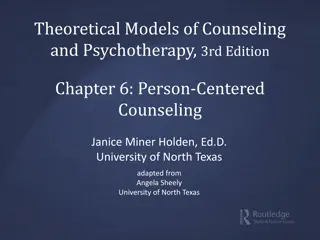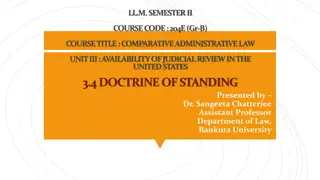Standing Strong in a Humanistic World
In Philippians chapter three, Paul warns against placing confidence in worldly achievements and emphasizes the importance of knowing Christ. He exhorts believers to focus on their citizenship in heaven and eagerly await the transformation by Jesus Christ. The prevailing humanistic narrative of society is challenged, highlighting the fallen state of humanity and the need to endure challenges with faith between Christ's comings.
Uploaded on Nov 13, 2024 | 0 Views
Download Presentation

Please find below an Image/Link to download the presentation.
The content on the website is provided AS IS for your information and personal use only. It may not be sold, licensed, or shared on other websites without obtaining consent from the author. Download presentation by click this link. If you encounter any issues during the download, it is possible that the publisher has removed the file from their server.
E N D
Presentation Transcript
Hanging Tough and Looking Up Hanging Tough and Looking Up 3:12 3:12 21 21 Week 38 Week 38 7 December 2022 7 December 2022
PHILIPPIANS OVERVIEW CHAPTER THREE In this third chapter, Paul warns against placing great confidence in the flesh. For Paul, all such fleshy achievements were considered rubbish in relation to the excellence of knowing Christ Jesus. Therefore all of Paul s goals were found in Christ (1-11). Paul then describes his attitude of pressing on, and encourages all to follow his example and that of others who walk likewise (12-17).
PHILIPPIANS OVERVIEW CHAPTER THREE Paul considered such an exhortation necessary in view of the reality that there are many people who are enemies of the cross of Christ, and who have made their fleshly appetites the focus of their minds, and indeed their god (18-19). This chapter closes by reminding Christians that our true citizenship is in heaven, from which we eagerly wait for Jesus Christ who will transform our lowly bodies to be conformed to His glorious body (20-21).
PHILIPPIANS 3:12 21 In a predominantly humanistic society like ours, it s not uncommon to hear the glories of humanity exalted in exaggerated terms. Our open-minded media parades before our eyes immoral living as a virtue. They promise social progress through secular and even anti-Christian means. From politics to education, from spirituality to ethnics, our sophisticated, twenty-first-century world functions on the presupposition that people are basically good, society can get better, and the only thing standing in the way is backward-thinking Neanderthals who can t pull their noses out of an ancient, outdated book like the Bible.
PHILIPPIANS 3:12 21 The problem with this widely popular narrative is that its foundations are completely false. People are not basically good, the world is not getting better, and our hope is not in humanity. The truth is, this world is in rough shape. War, not peace, is the norm. Quarrels, conflicts, lawsuits, and family feuds are common-place. Friendships cool, marriages fracture, partnerships dissolve, personalities collide, and churches split. Why? Because the depravity of humanity has taken an awful toll on this world. Sin abounds. Death, destruction, pain, and chaos are the order of the day.
PHILIPPIANS 3:12 21 Yet God has chosen to leave believers on this earth, not to retreat from its pain and suffering, but to engage it up close and personal. This calling requires us to strap in for a bumpy ride, to hang tough for the long haul. On this rough road between the first and second coming of Christ, we need to keep our heads up, our eyes forward, and our hearts heavenward. The Christian life is a marathon not through the level, paved streets of a clean and friendly city, but across rocky, toilsome, dangerous terrain filled with pitfalls and predators.
PHILIPPIANS 3:12 21 It s comforting to know that we re not the first Christians to make this journey through a wicked, hostile world. Those who have gone before us have cut a path for us to follow. In Philippians 3:12-21 the apostle Paul establishes several markers along the route important truths to take to heart and practical advice to follow as we hang tough . . . and look up.
PHILIPPIANS 3:12 16 12Not that I have already attained, or am already perfected; but I press on, that I may lay hold of that for which Christ Jesus has also laid hold of me. 13Brethren, I do not count myself to have apprehended; but one thing I do, forgetting those things which are behind and reaching forward to those things which are ahead, 14I press toward the goal for the prize of the upward call of God in Christ Jesus. 15Therefore let us, as many as are mature, have this mind; and if in anything you think otherwise, God will reveal even this to you. 16Nevertheless, to the degree that we have already attained, let us walk by the same rule, let us be of the same mind.
PHILIPPIANS 3:12 16 When Saul of Tarsus was confronted by Christ on the road to Damascus (Acts 1:1-6), his whole world was turned upside down or, rather, right-side up. He had been leaning on his laurels, relying on religion, trusting in tradition, and priding himself on his pedigree. But all of that disintegrated before the glorious, transforming power of the gospel of Jesus Christ. He experienced salvation by grace alone through faith alone in Christ alone. From that moment on, joy entered into his life true, abiding, deep-seated joy that could keep him singing even during his dark days and most depressing circumstance.
PHILIPPIANS 3:12 16 But this didn t mean Paul had arrived. His Damascus road experience didn t pluck him from earth and place him in the foyer of the heavenly Jerusalem. Rather, it turned him from the wrong path and started him on a new journey. A new quest for Christlikeness had commenced. The obstacles on the path and the distractions from the world became even more dangerous, requiring him to press on (3:12). In Paul s profound description of the journey of faith in Philippians 3:12-16, we can see a number of vital principles. There are at least fivereminders Paul felt were important to share with those who are on the same path.
PHILIPPIANS 3:12 16 FIRST God s plan is progress not perfection (3:12). Paul was clear: He had not yet obtained the full outcome of his salvation. As one commentator notes, the it in 3:12 probably refers to the experiential process begun in his salvation. He looked forward to the resurrection from the dead and, secondarily, to the process of conformity to death which would bring it forth. Paul was on the same path as every one of us. He had been justified (declared righteous by God) on the basis of the merits of Christ, and like all of us, he was in the process of being sanctified as he looked forward to one day being glorified through resurrection. Perfection in this life is not possible.
PHILIPPIANS 3:12 16 We are frail, fallen, feeble humans; and we will continue in this state until our death. Not only are we imperfect, but so is everyone around us. The best, most moral, most Christlike person who has ever lived is still a wicked sinner saved by grace, unable to be compared to the perfect standard of holiness we see in Christ. But constant progress toward Christlikeness is possible. Yes, believers get very frustrated with their lack of stunning progress in their pursuit of Christlikeness. Yes, believers have petered out and failed. They get down on themselves for their inability to measure up to an impossible standard in this life. This is precisely when they need to hear that the plan is progress, not perfection. We press on in spite of knowing that in this life we will never fully arrive.
PHILIPPIANS 3:12 16 SECOND the past is over so leave it behind (3:13). We can press on through the long haul when we keep our eyes on the road ahead of us rather than being obsessively fixated on what s behind. To emphasize this point, Paul uses the Greek word which means disregard or put out of mind. Paul isn t talking about forgetting people in our pasts or vital life lessons or edifying experiences or positive things Christ has done. In this specific context, Paul s talking about the rubbish that was strewn in the road when his old life prior to Christ exploded all his self-righteous striving, and the harm he had done in his pride, arrogance, blasphemy, and heresy (3:4-8).
PHILIPPIANS 3:12 16 Living in the past whether basking in old glories or pouting over old defeats keeps us from advancing boldly into the future. Think about it. If you drive a car while looking only in the rearview mirror, how far will you get before you drive off the road? You can t dwell on the past if your goal is to move forward. In relation to basking in the past, folks who live in the glory of past achievements slacken their efforts for what they might be able to do today. They keep calling to mind the way things were, perhaps even something God did, some great accomplishment He performed. One place this is often seen is in older churches or ministries that obsess over what they once were.
PHILIPPIANS 3:12 16 We don t want to dishonor our history, but we need to minister in the here and now. We honor the past, we are thankful for the past, and we learn from the past. But we don t worship the past. With respect to pouting over the past, I m sure we ve all had times when we just couldn t get our minds to stop rerunning scenes of defeat or episodes of disappointment. We all have them every one of us. These experiences can be great teachers of God s faithfulness in spite of our failures. But to keep projecting that same old reel over and over and over again in our minds will hinder us from engaging in new experiences, making new memories, and learning new lessons.
PHILIPPIANS 3:12 16 THIRD the future holds out hope so reach for it (3:13- 14). In the same pivotal movement in which Paul consciously lets go of his past, he turns his full attention to the future, pressing on toward the goal for the prize of the upward call of God in Christ Jesus (3:14). Here Paul employs language reflecting the intensity of an athlete running a desperate race to the finish line, eager to win first prize. The word translated reaching forward is a vivid athletic term meaning that the athlete throws himself forward in the race with all his energies straining to the very utmost. If earthly athletes give their all for temporal awards, how much more should we who are recipients of a heavenly call push ourselves to receive a heavenly reward?
PHILIPPIANS 3:12 16 FOURTH the secret is a determined attitude so maintain it (3:15). Paul reminds us that it s all about our attitude. The verb translated have this attitude means to set one s mind on or be intent on. In light of his personal example of looking forward, not backward, Paul calls his readers to focus all their attention and energy on pressing on in the Christian life. But why does Paul urge only the perfect to have this attitude? Doesn t this sound like a contradiction? How could he say as many as are perfect here, but in 3:12 assures the Philippians that he hadn t become perfect ?
PHILIPPIANS 3:12 16 In 3:12, Paul used the Greek verb meaning to complete an activity or bring to an end. Paul was stating that he hadn t yet reached the end of his journey, which would only occur when he attained his heavenly home and was experiencing glorious, immortal life beyond the resurrection (3:10-11). And this state was certainly not his to be had in the present life. Until then, he would continue to press on toward greater and greater Christlikeness. In 3:15, Paul uses a similar but distinct term, an adjective to describe the type of person he is addressing with his admonition to press on. This word is best translated not as perfect but as mature.
PHILIPPIANS 3:12 16 Paul use of this term here is similar to how he uses it in 1Corinthians 2:6 > We do speak wisdom among those who are mature. They were notperfect in the absolute sense, but mature to the point that they were able to take spiritual things seriously. But what about those who aren t mature enough to face the future with the kind of all-out determination and dedication Paul exemplifies? The last part of Phil. 3:15 answers that: If in anything you think otherwise, God will reveal even this to you.
PHILIPPIANS 3:12 16 Paul graciously acknowledges that everybody grows up in Christ at different paces. In the spiritual marathon, some will be nearing the finish line at full speed . . . others will be farther behind . . . some will be trudging along at a snail s pace . . . and a few will be dragged along by others. Paul knew that not everybody was yet in the same condition for running the race at top speed. But he was confident that God would continue to work in them toward the upward call in Christ Jesus.
PHILIPPIANS 3:12 16 FINALLY the need is to keep a high standard together (3:16). Did you notice that Paul shifted the focus from himself as the example in 3:12-14 to include all believers in the journey in 3:15-16 by saying let us ? Living the Christian life is a team effort, not a solo mission. As each of us maintains our own level of spiritual maturity, we also encourage others to do the same. We are to lock arms with our brothers and sisters in the family of God. If we see one of our brothers slowing down in the race, we need to take him by the arm and encourage him to press on. When we see a sister out of breath from the exasperating challenges of life, we need to remind her to look up and look forward, to press on toward maturity.
PHILIPPIANS 3:17 21 17Brethren, join in following my example, and note those who so walk, as you have us for a pattern. 18For many walk, of whom I have told you often, and now tell you even weeping, that they are the enemies of the cross of Christ: 19whose end is destruction, whose god is their belly, and whose glory is in their shame who set their mind on earthly things. 20For our citizenship is in heaven, from which we also eagerly wait for the Savior, the Lord Jesus Christ, 21who will transform our lowly body that it may be conformed to His glorious body, according to the working by which He is able even to subdue all things to Himself.
PHILIPPIANS 3:17 21 In the concluding verses of this chapter, Paul s words take on a serious tone . . . but only for a moment. He needs to remind his readers of something he has learned through personal experience: The path before us is not only littered with numerous pitfalls that can slow us down or distract us, but it is also occupied by predators enemies of the cross of Christ (3:18). They sometimes look like us. Often they appear to be trudging along the same trail as we are. In light of this real threat, Paul instructs the Philippians on how to press on. We can sum up these instructions as Paul s marching orders spiritual instructions to the Christian saint from a seasoned veteran who has endured countless battles.
PHILIPPIANS 3:17 21 FIRST we need godly examples to follow (3:17). To live as salt and light in this dark world, we need mature models in the faith like Paul experienced saints who have faced challenges, lived through tragedies, and overcome obstacles. Paul expresses a similar thought in 1Cor. 11:1 > Imitate me, just as I also imitate Christ. But why doesn t Paul just turn our attention to Jesus? Why point us to himself, a mere human example? Because God has intentionally given to us contemporary models to follow. They, like us, are fallen, frail human beings indwelled by the same Spirit. They, like us, are striving after Christlikeness. They, like us, are seeking to live God- honoring lives in the midst of a twisted, corrupt, sinful world.
PHILIPPIANS 3:17 21 When we look at Christ, we see the perfection we will one day reflect; but when we look to imperfect men and women growing more like Christ, we see what we are. In this life we will never measure up to the God-man; but we can follow in the steps of godly men and women. What kind of person makes a good model for us to follow along life s dangerous path? Paul answered that question in a letter he wrote toward the end of his life to Timothy: Now you have followed my teaching, conduct, purpose, faith, patience, love, perseverance, persecutions, and suffering . . . ; what persecutions I endured, and out of them all the Lord delivered me! (2Tim. 3:10-11).
PHILIPPIANS 3:17 21 At this point someone might think, Well, Paul was an apostle. I could see why Timothy would want to follow his example. But we don t have any apostles today. But Paul also said, Note those who so walk, as you have us for a pattern (3:17). He turned their attention not just to himself, but to any example of Christlike living in a Christless world. God has given to each of us people who live admirable lives on earth today. There is nothing wrong in fact, there is everything right about following their examples. The only warning is that we don t idolize them or put them on a pedestal.
PHILIPPIANS 3:17 21 If they are genuine examples of Christlikeness, they wouldn t want to be on a pedestal anyway! So choose your spiritual heroes and sheroes carefully, study their lives, and follow only those who truly sought or are seeking to be like Christ. SECOND we live among many enemies of the cross (3:18- 19). In these verses, Paul sets up a basic contrast. After urging the Philippians to follow the pattern of godly believers (3:17), he gives the reason: For many walk, of whom I have told you often, and now tell you even weeping, that they are the enemies of the cross of Christ (3:18). Paul then describes these opponents in 3:18-19.
PHILIPPIANS 3:17 21 Their negative characteristics were so destructive that they made Paul weep, and they can give us an idea of the kind of positive examples we need in our lives to counter the numerous purveyors of evil. Destined for eternal hopelessness, driven by sensual appetites, and dedicated to material things, these men and women who have rejected Christ s person and work are lost, wandering souls. We bump up against them every day. They don t need our condemnation and judgment, nor our agreement and affirmation. They need to be reconciled to Christ, becoming allies not enemies of the cross. As we travel along our path, following the good example of godliness, we can t forget why God left us in this world among the lost.
PHILIPPIANS 3:17 21 Our mission is to call them to believe in the One they reject, to submit to His kingdom, and to enter with us into heavenly citizenship. THIRD we belong among those who are bound for heaven (3:20-21). Paul dwells on the unbelieving evildoers for only a moment. He needed to warn the Philippians and contrast the way of the enemies with the path of believers, but he quickly turns again to the positive: our future hope as heaven-bound citizens of Christ s kingdom. Remember, the lost set their minds on earthly things (3:19); but as believers, we re to set our minds on the things above (see Col. 3:2). We do this by always looking forward and upward, eagerly awaiting the coming of Jesus Christ, our Savior (3:20).
PHILIPPIANS 3:17 21 The Greek word Paul uses for citizenship means commonwealth or state. Paul uses it to convey the idea that our homeland isn t here; our place of residence is in another realm entirely. That makes us expatriates a colony of foreigners. But we don t need to see ourselves as helpless refugees huddled in an overcrowded camp. We re more like ambassadors, emissaries, and representative of the next world as we live in the present one. Yes, one day our King will come. He will transform the [lowly] body of our humble state that it may be conformed to His glorious body (3:21) and escort us to our heavenly home.
PHILIPPIANS 3:17 21 As Paul wrote to the Thessalonians, For the Lord Himself will descend from heaven with a shout, with the voice of an archangel, and with the trumpet of God. And the dead in Christ will rise first. 17Then we who are alive and remain shall be caught up together with them in the clouds to meet the Lord in the air. And thus we shall always be with the Lord. 18Therefore comfort one another with these words (1Thes. 4:16-18). One day, we will be home in heaven. The long, arduous, painful journey whether it s a sprint toward the finish line or a limp along the path will end. We ll stand together victorious, clothed in glory, and basking in the brilliance of our Savior. Finally, we will be free from the pain and sorrow of this world, reunited with those beloved saints who have gone before us, and rejoicing eternally in Christ our King.
APPLICATIONS OF THE LESSON Standing Firm without Standing Still
PHILIPPIANS APPLICATION Throughout Paul s letter to the Philippians there is a focus on the Lord as the source of our ability to stand firm with confidence, joy, and strength. However, we must never confuse standing firm with standing still. A lot of things in this messed up world can cause us to stall. God didn t put us here to huddle in a corner, hide in a crevice, or hurry ourselves to heaven. He has called us to make a difference where we are to be insulated from the wickedness of our times but not isolated from the world itself. To help us stand firm without standing still, Swindoll asks three probing questions . . .
PHILIPPIANS APPLICATION FIRST are you dwelling on the past, letting it control your attitudes and actions? Or are you letting go of those things that happened long ago, setting your mind on the things above and continuing to take steps forward toward maturity. Swindoll suggests memorizing the epic words of Paul in Philippians 3:13-14. SECOND are you following good examples? Do you have a Paul to look up to, a Timothy to imitate, an Epaphroditus to follow, a godly hero to learn from? Do the people you look up to, spend time with, and learn from, live up to the qualities Christ wants to see formed in you? Or do you need to seek out a mentor more like what Paul had in mind?
PHILIPPIANS APPLICATION FINALLY are you eagerly anticipating the coming of Christ? Do you live today by the principles of your true heavenly home? Would the enemies of the cross know that this world is not your home? Or do you blend in, compromise, and hide your true identity in Christ? Are there people in your life today family, friends, neighbors, co-workers who need to hear a word of testimony, encouragement, or warning from you as a heavenly ambassador? Are there areas in your life that have a negative impact on others? What do you need to do to change that? Start now!
NEXT CLASS 14 December 2022 Before next class, read the below verses in the Before next class, read the below verses in the NKJV and in one other versions of the Bible, NKJV and in one other versions of the Bible, i.e., NIV, NRSV, KJV, CEV, etc i.e., NIV, NRSV, KJV, CEV, etc Chapter 4:1 9 The Cure for Anger and Anxiety



